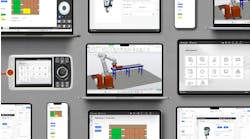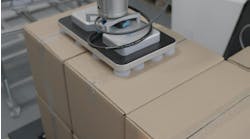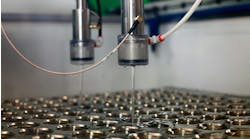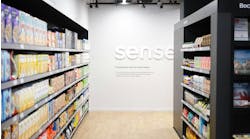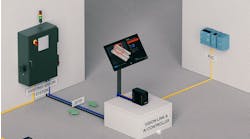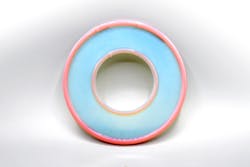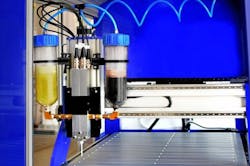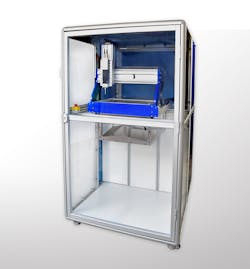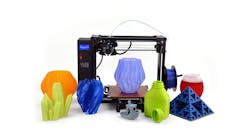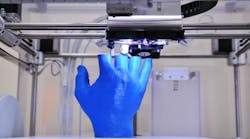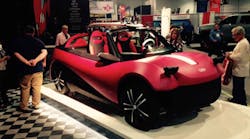Latest from Industry Trends
ÖBB Railcars Turns to New Additive Manufacturing Technique for Railcar Components
ÖBB, the federal railway of Austria, is now operating multiple trains with industrial-strength, polyurethane bellows, grommets, and other parts 3D printed by Chromatic 3D Materials.
In June, ÖBB Train Tech faced challenges sourcing obsolete components, an issue that's been plaguing the transportation sector. The company turned to Chromatic 3D for prototypes for several custom parts. In just a few weeks, ÖBB purchased 130 grommets as well as bellows, cable glands, and valve covers 3D-printed with Chromatic’s RX-AM platform for reactive extrusion additive manufacturing.
The platform is based on a new type of additive manufacturing that uses liquids instead of hardened materials that rely on a chemical reaction to create a build. A reaction starts inside the printer head, triggering a bonding process that then yields industrial-strength elastomers once it's deposited onto a surface. Reactive extrusion additive manufacturing is able to print on metals, textiles, polymers, ceramics, and glass.
The components were designed to enhance the performance, longevity, and comfort of ÖBB’s fleet by reducing vibrations and preventing dust and moisture from getting into specific areas of its railcars. The applications required the parts to tightly seal against air and water in moving vehicles. All the parts were 3D printed with thermoset polyurethane for durability and flexibility. These included, for example, load-bearing grommets with dense, solid walls that were 15 mm thick.
"We chose Chromatic because they are able to print PU in different hardness between 50 to 90 shore A,” said Sebastian Otto, Head of AM at ÖBB Train Tech.
The 3D-printed polyurethanes have the same three-dimensional strength and compression set as injection-molded parts.
Chromatic also recently released a new 3D printer using this reactive extrusion printing process called RX-Flow. Designed for development work and low-volume production, these printers are a low-cost option for manufacturers interested in testing and implementing industrial 3D printing with more durable, flexible materials than are available with FDM, SLA, and other 3D printing technologies. They can produce up to 800 g/hr. Features include a T-track aluminum table and a lead screw drive system.
“At Chromatic, we take pride in the durability of our 3D-printed materials, which have undergone rigorous testing. Now that ÖBB is demonstrating the use of our 3D materials in rail applications, we expect customers with demanding transportation, aerospace, industrial, and defense applications will have confidence in Chromatic’s products and printing technologies,” said Dr. Bart Engeldahl, Managing Director of Chromatic 3D Materials in Germany.
Chromatic 3D Materials is a 3D-printing technology company focused on more flexible, cost-effective, and sustainable manufacturing of industrial-strength elastomeric products. Its portfolio includes printable polyurethanes and other thermoset elastomers for applications in transportation, industrial seals and gaskets, textiles, medical devices, and defense. Founded in 2016 by CEO Dr. Cora Leibig, Chromatic now has facilities in the US and Germany. Visit c3dm.com to learn more.
